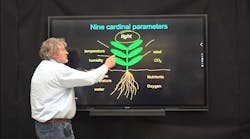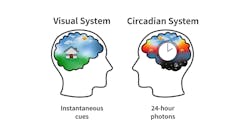According to the Xinhua News Agency, the phase-out will affect imports and sales of incandescent lamps, and will proceed as follows:
- 100W and above – banned from October 1, 2012
- 60W and above – banned from October 1, 2014
- 15W and above – banned from October 1, 2016
China is a major manufacturer and consumer of lighting products and is the world's largest producer of both energy-saving and incandescent bulbs. In 2010, production of incandescent light bulbs totaled 3.85 billion units, and domestic sales stood at 1.07 billion units, said Xie.
Power consumption for lighting in China accounted for 12 percent of the country's total electricity use in 2010. The NRDC expects that the plan will enable China to save 48 billion kW.hr of power per year and reduce emissions of carbon dioxide by 48 million tonnes annually.
Christophe Bahuet, deputy country director of United Nations Development Programme (UNDP), was quoted in the Xinhua News Agency article as saying: "Phasing-out incandescent lamps in China will not only promote lighting technology progress and lighting industry upgrading and optimization, it will also make a positive contribution for realizing China's energy conservation and emission reduction goal."
China’s phase-out ties in with legislation in other countries and regions to stop using these products. Europe’s incandescent phase-out affected 60W-and-higher lamps from September 2011, while the USA begins to a nationwide ban on 100W-and-above incandescents from January 1, 2012 – see www.ledsmagazine.com/news/8/1/2.
In addition to Cree, the Nov 4 announcement also had a positive effect on the share prices of MOCVD equipment maker Veeco (Nasdaq: VECO, up 10%), sapphire-wafer maker Rubicon (Nasdaq: RBCN) up 18%), and LED maker SemiLEDs (Nasdaq: LEDS, up 31%).




